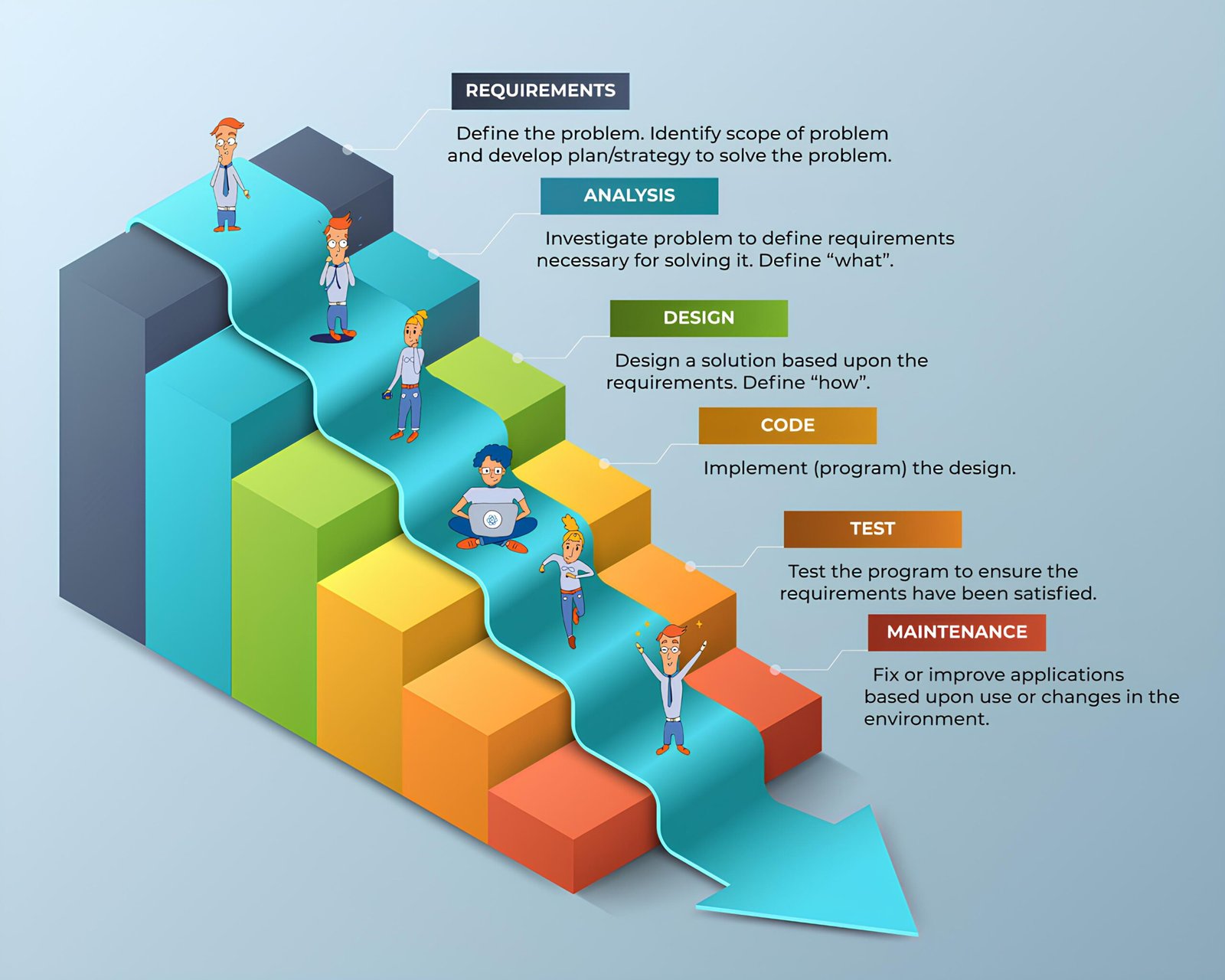Introduction to Data Science
In recent years, data science has evolved beyond a mere buzzword to become a critical pillar in business strategy, fundamentally transforming how organizations operate, innovate, and engage with their customers. As a multidisciplinary field, data-science integrates techniques from mathematics, statistics, computer science, and information science to analyze and interpret complex data. This allows for the extraction of actionable insights and predictive models that are revolutionizing decision-making processes across industries.
This article delves into the core of data science, examining its principles, importance, and the transformative impact it holds for businesses. We will explore how leveraging big data through sophisticated data analytics can lead to more informed decisions, enhanced operational efficiencies, better customer experiences, and ultimately, a substantial competitive advantage. Moreover, with the advent of advanced technologies such as machine learning, artificial intelligence, and big data platforms, data-science is continuously expanding its influence, enabling businesses not only to predict future trends but also to shape them.
As we progress, I will discuss the essential tools and technologies that empower data scientists, the skills required to succeed in this dynamic field, and how businesses of all sizes are implementing data-driven strategies to maximize their outcomes. Whether you’re a startup looking to carve out a niche or a well-established corporation aiming to maintain its market dominance, understanding and applying data science concepts is increasingly becoming a necessity. By the end of this article, you should have a clearer understanding of why data-science is pivotal in today’s data-centric world and how it can be harnessed to unlock the potential of your business.
What are Data Science, and Why Does it Matter?
Data science is the practice of extracting knowledge and insights from data using scientific methods, processes, algorithms, and systems. It entails gathering, cleansing, analyzing, and interpreting data to identify patterns, trends, and correlations that facilitate informed decision-making. In today’s digital age, where vast amounts of data are generated every second, data science has become crucial for businesses to gain a competitive edge.
Data science helps businesses understand customer behavior, optimize operations, identify market trends, and develop targeted marketing strategies. By harnessing the power of data-science, companies can make data-driven decisions that lead to increased efficiency, improved profitability, and enhanced customer satisfaction. It enables businesses to leverage their data assets to unlock new opportunities and drive innovation.
The Role of Data Science in Business
Data science plays a pivotal role in transforming businesses into data-driven organizations. It empowers companies to make better decisions by providing insights derived from data analysis. Data-science helps businesses identify patterns and trends in consumer behavior, enabling them to tailor their products and services to meet customer needs more effectively.
Moreover, data-science allows businesses to optimize their operations by identifying bottlenecks, improving processes, and reducing costs. By analyzing data, companies can uncover inefficiencies and make data-driven decisions to streamline their operations and increase productivity.
Data science also has a significant impact on marketing and sales. By analyzing customer data, businesses can identify target audiences, personalize marketing campaigns, and optimize pricing strategies. This results in enhanced customer engagement, improved conversion rates, and ultimately, better sales performance.
Benefits of Implementing Data Science in Your Business
Implementing data science in your business can bring numerous benefits that have a direct impact on your bottom line. Here are some key advantages of harnessing the potential of data-science:
1. Improved Decision-Making: Data-science provides valuable insights that can inform strategic decision-making. Through data analysis, businesses can discover trends, patterns, and correlations that assist decision-makers in making knowledgeable choices.
2. Enhanced Efficiency and Productivity: Data-science allows businesses to identify bottlenecks, streamline processes, and optimize operations. By eliminating inefficiencies and automating tasks, companies can increase productivity and reduce costs.
3. Better Customer Understanding: Data-science helps businesses gain a deeper understanding of their customers. By analyzing customer data, companies can identify preferences, behaviors, and needs, allowing them to tailor their products and services to meet customer expectations.
4. Improved Marketing and Sales Performance: By leveraging data-science, businesses can optimize their marketing and sales strategies. Personalized marketing campaigns, targeted advertising, and optimized pricing strategies can lead to increased customer engagement, higher conversion rates, and improved sales performance.
5. Identification of New Business Opportunities: Data-science enables businesses to uncover hidden patterns and trends in data. By analyzing market data, businesses can identify new opportunities, develop innovative products or services, and gain a competitive edge.
Data Science Tools and Techniques

To harness the potential of data-science for your business, it is essential to have the right tools and techniques in place. Here are some commonly used data-science tools and techniques:
1. Data Collection and Cleaning: Data-science starts with collecting and cleaning data. Tools like Python, R, and SQL are commonly used for data collection and cleaning tasks. These tools allow data scientists to extract, transform, and load data from various sources.
2. Data Analysis and Visualization: Once the data is collected and cleaned, data analysis and visualization tools come into play. Tools like Tableau, Power BI, and Excel can be used to explore and visualize data, identify patterns, and gain insights.
3. Machine Learning and Predictive Modeling: Machine learning algorithms and predictive modeling techniques are at the core of data-science. Tools like TensorFlow, scikit-learn, and Keras provide libraries and frameworks for building and training machine learning models.
4. Big Data Processing: With the increasing volume of data, big data processing tools like Hadoop and Spark are essential for handling large datasets. These tools enable businesses to process, analyze, and derive insights from massive amounts of data.
5. Cloud Computing: Cloud computing platforms like AWS, Azure, and Google Cloud provide scalable infrastructure for data storage, processing, and analysis. Using cloud services, businesses can leverage the power of data-science without investing heavily in infrastructure.
Steps to Harness the Potential of Data Science for Your Business
To successfully harness the potential of data-science for your business, follow these steps:
1. Define Your Objectives: Clearly define your business objectives and identify the key areas where data-science can make a significant impact.
2. Collect and Clean Data: Gather relevant data from various sources and ensure it is clean and ready for analysis.
3. Analyze and Visualize Data: Use data analysis and visualization tools to explore the data, identify patterns, and gain insights.
4. Develop and Train Models: Apply machine learning algorithms and predictive modeling techniques to build models that can make accurate predictions and generate insights.
5. Implement Data-Driven Decision-Making: Use the insights derived from data analysis to inform your decision-making process. Base your decisions on data that aligns with your business goals.
6. Monitor and Evaluate: Continuously monitor and evaluate the performance of your data-science initiatives. Use feedback and insights to refine your models and improve decision-making.
Challenges in Implementing Data Science in Business
While data-science offers immense potential for businesses, there are several challenges that need to be addressed. Some common challenges in implementing data-science in business include:
1. Data Quality and Availability: Data quality and availability are critical for successful data-science initiatives. Ensuring clean, reliable, and accessible data can be a significant challenge.
2. Skills Gap: Data-science requires a unique skill set, including knowledge of statistics, mathematics, programming, and domain expertise. Finding and retaining skilled data scientists can be a challenge for businesses.
3. Integration and Scalability: Integrating data-science solutions with existing systems and processes can be complex. Scalability is also a concern when dealing with large volumes of data.
4. Ethical and Privacy Concerns: Data-science involves handling sensitive customer data, raising ethical and privacy concerns. Businesses need to ensure compliance with data protection regulations and maintain ethical practices.
Hiring Data Scientists or Outsourcing Data Science Services
When considering implementing data-science in your business, you have two options: hiring data scientists or outsourcing data science services. Each method comes with its unique benefits and factors to consider.
Hiring data scientists gives you full control over your data-science initiatives. You can build an in-house team of data scientists who have a deep understanding of your business and industry. However, this option can be costly and time-consuming. Finding and retaining skilled data scientists can be a challenge, and it requires significant investment in recruitment, salaries, and training.
On the other hand, outsourcing data-science services can provide cost-effective access to data-science expertise. Outsourcing allows you to leverage the skills and experience of specialized data-science companies without the need for extensive hiring and training. However, it may result in less control over your data and require effective communication and collaboration with the outsourcing partner.
Ultimately, the decision between hiring data scientists or outsourcing data science services depends on your business objectives, budget, and resources.
Tools and Technologies for Data Science
There is a wide range of tools and technologies available for data-science. The choice of tools depends on your specific requirements and preferences. Here are some widely used tools and technologies in the field of data-science:
1. Python: Python is one of the most popular programming languages for data science. It provides a wide range of libraries and frameworks for data analysis, machine learning, and visualization.
2. R: R is another powerful programming language for data science. It is extensively utilized for statistical analysis, data visualization, and predictive modeling.
3. SQL: SQL is essential for data collection, cleaning, and querying. It allows you to interact with databases and extract relevant data for analysis.
4. Tableau: Tableau is a data visualization tool that enables you to create interactive dashboards and reports. It helps in presenting data insights in a visually appealing and understandable manner.
5. TensorFlow: TensorFlow is an open-source library for machine learning and deep learning. It provides a flexible platform for building and training machine learning models.
6. Hadoop: Hadoop is a framework for distributed storage and processing of large datasets. It allows businesses to handle big data and perform complex data analysis tasks.
Case Studies of Successful Data Science Implementations
To illustrate the power of data-science in driving business success, let’s take a look at some real-world case studies:
1. Netflix: Netflix uses data science to personalize its content recommendations. By analyzing user data, Netflix can suggest movies and TV shows based on individual preferences, leading to increased user engagement and retention.
2. Amazon: Amazon leverages data science to optimize its supply chain and inventory management. By analyzing customer buying patterns and demand forecasts, Amazon can ensure timely delivery and reduce costs.
3. Google: Google uses data science to improve its search algorithms and provide more relevant search results. By analyzing user behavior and search patterns, Google can deliver personalized search experiences.
4. Uber: Uber relies on data science to optimize its pricing strategies. By analyzing factors like supply and demand, traffic patterns, and customer behavior, Uber can dynamically adjust prices to maximize revenue.
These case studies highlight the transformative impact of data-science on businesses of all sizes and industries.
Conclusion: Embracing Data Science for Business Success
In today’s data-driven world, harnessing the power of data science is vital for businesses to stay competitive and thrive. By understanding what data science is and how it can benefit your business, you can unlock its potential and drive innovation.
Implementing data science requires the right tools, techniques, and talent. Whether you choose to hire data scientists or outsource data science services, it is essential to have a clear strategy and defined objectives.
By embracing data science, you can make better decisions, optimize operations, and gain a deeper understanding of your customers. Data science has the power to transform your business, unlock new opportunities, and drive success in today’s digital age. Start harnessing the potential of data science for your business today and unleash its power to drive innovation and growth.
Subscribe to our newsletter to receive future updates on Technology, Artificial Intelligence (AI), and Tech Trends. Explore our categories to find more relevant stuff. Stay informed and motivated with our most recent insights!




